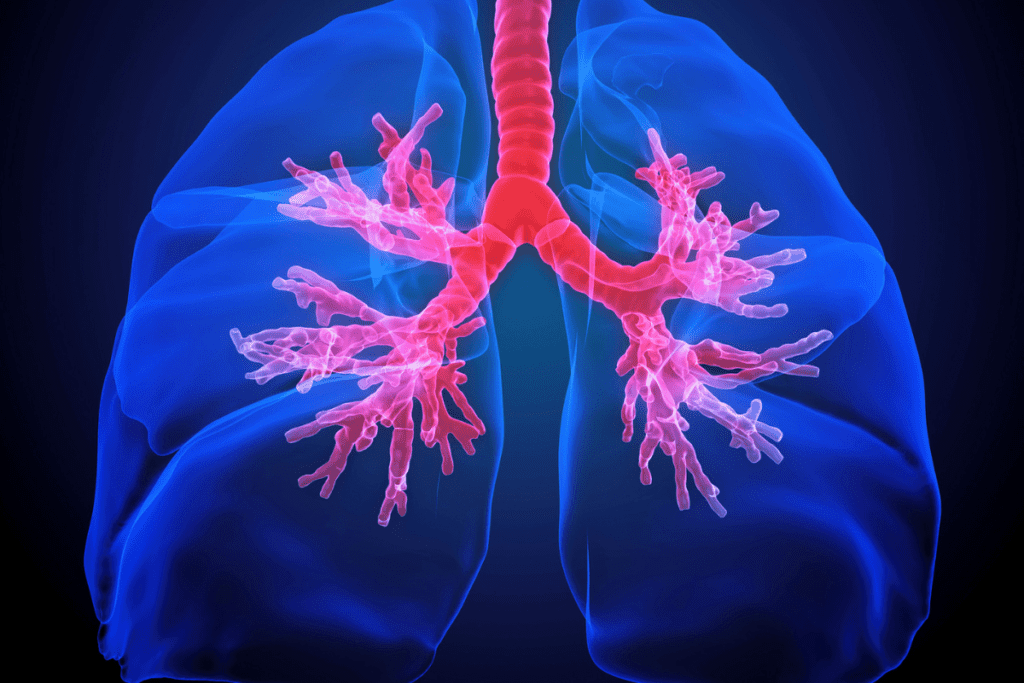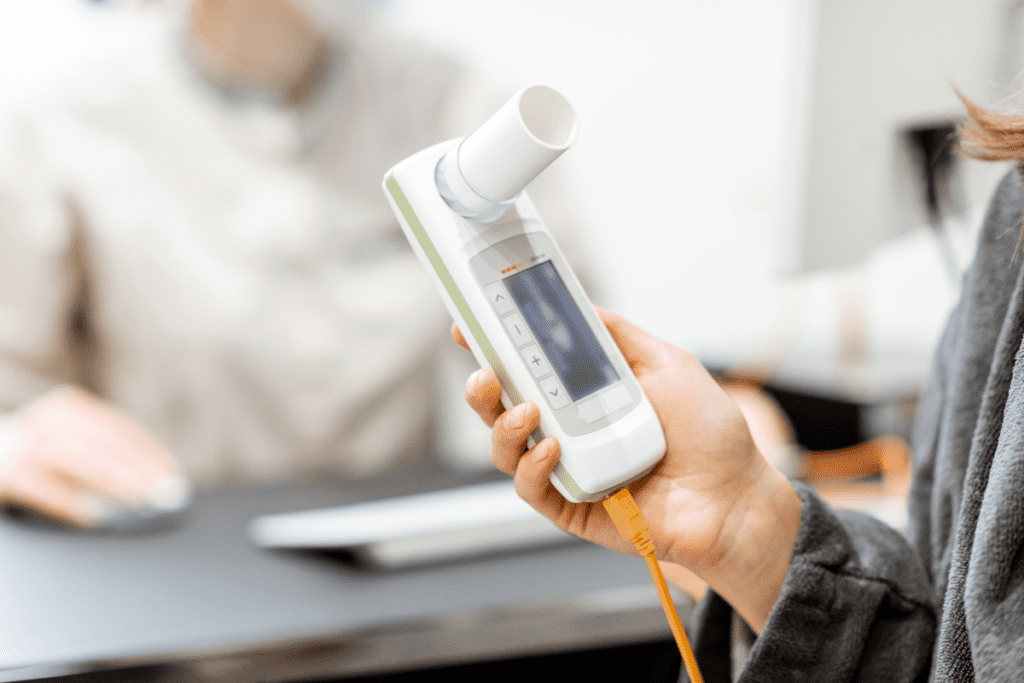If you are an employer it’s important to be aware of Pulmonary Function Testing and what it is. WorkSafe Physical Therapy provides Pulmonary Function Testing now in our office and onsite for you! Pulmonary Function Testing (PFT) is a diagnostic test that measures how well your lungs work.
What is Pulmonary Function Testing
Pulmonary Function Testing (or PFT) is a diagnostic test that measures how well your lungs work. By evaluating your lung function, providers can determine if there are any issues with your respiratory system and provide treatment and recommendations as needed. A spirometry breathing test shows how well you can move air in and out of your lungs.
If airborne contaminants in the workplace go beyond what is permitted or if employees need to use respirators because of dangerous respirable exposures, then the Occupational Health and Safety Administration (OSHA) requires employers to have a written respiratory protection program as stated in the federal respiratory protection standard (29 CFR 1910.134).
Spirometry is the most common pulmonary function test used and it is what we use at WorkSafe Physical Therapy.
What Do Pulmonary Function Tests Measure?
Pulmonary function tests measure different aspects of lung function, including how much air the lungs can hold, how quickly they can move air in and out of them, and how well the lungs can exchange gases with the blood. Pulmonary function tests also provide information on how well your body absorbs oxygen into your bloodstream, which is especially important for those at risk of developing lung disease or who have preexisting lung conditions.

- Tidal volume (VT). This is the amount of air inhaled or exhaled during normal breathing.
- Minute volume (MV). This is the total amount of air exhaled per minute.
- Vital capacity (VC). This is the total volume of air that can be exhaled after inhaling as much as you can.
- Functional residual capacity (FRC). This is the amount of air left in the lungs after exhaling normally.
- Residual volume. This is the amount of air left in the lungs after exhaling as much as you can.
- Total lung capacity. This is the total volume of the lungs when filled with as much air as possible.
- Forced vital capacity (FVC). This is the amount of air exhaled forcefully and quickly after inhaling as much as you can.
- Forced expiratory volume (FEV). This is the amount of air that expired during the first, second, and third seconds of the FVC test.
- Forced expiratory flow (FEF). This is the average rate of flow during the middle half of the FVC test.
- Peak expiratory flow rate (PEFR). This is the fastest rate you can force air out of your lungs.
How can Pulmonary Function Testing Help Employees Stay Safe in the Workplace?
If you are concerned about workplace safety and respiratory issues, Pulmonary Function Testing can help identify any potential risks or hazards in your workplace. By knowing the status of your employees’ lung function, you can make informed decisions about the best course of action to protect their health and well-being. Pulmonary Function Testing can also be used to evaluate the effectiveness of any respiratory protection equipment that may be required in your workplace.
Pulmonary function tests are vital to any respiratory protection program. By measuring an employee’s lung function, these tests can help identify those who may not be able to wear a respirator or work in hazardous environments effectively. When administered as part of the onboarding process, pulmonary function testing can save your company time and money in the long run.

Who is Required to Get a Pulmonary Function Test?
First, OSHA only requires pulmonary function testing in the medical surveillance provisions of standards related to particular substances. These include, but are not limited to asbestos, cotton dust, benzene, formaldehyde, and silica.
However, OSHA does advise that testing may be performed on workers who perform jobs that may cause exposure to possible lung hazards, are physically demanding, or require wearing a respirator.
Conclusion on Pulmonary Function Tests with WorkSafe Physical Therapy
Whether you work with hazardous chemicals, perform heavy manual labor, or have other risk factors for respiratory issues, Pulmonary Function Testing can help you stay safe and healthy at work. To learn more about Pulmonary Function Testing and how this diagnostic test can benefit your employees’ health, contact WorkSafe Physical Therapy today.
Contact WorkSafe to find out how we can help your company today!
Working to keep you safe, healthy, and productive,

